Space industry wants bigger mission
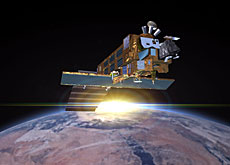
Switzerland’s space industry has renewed calls for the government to increase its involvement in the European Space Agency (ESA).
Firms say their potential is not being fully tapped – a view endorsed by the Swiss Space Office.
Swiss companies have been involved in space programmes for more than 30 years, a fact often overlooked when missions blast off to the Moon or Mars.
They have built cameras, motors and sensitive instruments which measure the dust and gas in a comet’s vapour.
When Envisat, the earth observation satellite was launched in 2002, 86 Swiss firms from 17 cantons supplied parts and components.
Around 800 people in Switzerland are directly involved in the space industry. When sub-contracting is taken into account, the figure rises to 2,000-3,000 jobs.
“We have tremendous potential here in Switzerland,” Daniel Fürst, deputy head of the Swiss Space Office, told swissinfo.
“It would benefit our industry and science community to increase our contribution to the European Space Agency.”
Role model
Switzerland is a founding member of the ESA and finances 3.64 per cent of the overall budget.
Under the principle of “geographical returns”, the percentage of budget paid is proportionate to the share of contracts handed out to each country.
Out of a total ESA budget of €2.5 billion (SFr3.94 billion), the Swiss contribution this year is SFr125 million.
About 80 per cent of this sum is ploughed back into Swiss industry and the Swiss science community.
“Every project we do we are forced to have partners because the Swiss contribution is limited to four per cent to meet the geographic returns,” said Umberto Somaini, chief executive of Contraves Space.
“We would like to do more. The weakness lies in the level of contributions we are willing to make in the programme. If we had a larger contribution, we could build whole instruments in Switzerland.”
National agency
Unlike most ESA states, Switzerland does not have a national space agency. Its industry is therefore dependent on the country’s investments in the ESA’s optional programmes.
“In countries which have a national programme, industry gets the chance to practice its technology, also to get the financing to develop its technology in order to be better prepared afterwards to go into the commercial market,” said André Pugin, president of the Swiss Association for the Space Industry.
“Compared with other countries in Europe, Swiss industry does not have the chance to practice its capabilities within a national or a military programme.”
Belgium, which also does not have a national space agency, invests heavily in what is known as the general support technology programme. This allows Belgium to support its industry and the scientific institutes.
“This could be a model for Switzerland and it would be very interesting to have a bigger contribution in these programmes,” said Fürst.
Timepieces
Over the years, Swiss companies such as Ascom, Ruag and Contraves Space have been active in the ESA.
Contraves Space in Zurich produces parts for the Ariane rockets while Maxon Motor, based in Sachseln near Lucerne, has supplied about 3,000 motors for various Nasa projects since 1992.
Micro-cameras developed by the Neuchâtel company, Space-X, are aboard several missions – including Smart-1, Europe’s first mission to the Moon and the ill-fated Beagle 2 lander.
Switzerland is also participating in future projects including the new €3.5 billion Galileo satellite navigation system, which is expected to be operational by 2008.
Among the companies taking part are TemexTime in Neuchâtel, Jast in Lausanne and Nemerix in Manno.
Benefits
Having a strong industry in space technology has several advantages.
“One of the big benefits of being part of the space adventure is that you develop a technology for space and then you can apply it in terrestrial systems,” added Fürst.
This is a view shared by Roger Bonnet, executive director of the International Space Science Institute in Bern.
“Space science is an essential element in innovation which contributes to the development of expertise in industry. This involvement raises the level of competitiveness.”
The space programmes also boost cooperation between academia and industry.
Academic partners include the Swiss Federal Institutes of Technology in Lausanne and Zurich, Cern near Geneva and the Swiss Centre for Electronics and Microtechnology based in Neuchâtel.
For the Rosetta mission, which was launched last month, Swiss industry collaborated with Bern University to build the mass spectrometer, known as Rosina, which will analyse the gases of a comet.
swissinfo, Vincent Landon
Switzerland is a founding member of the European Space Agency (ESA) and finances 3.64 per cent of the overall budget.
Out of a total ESA budget of €2.5 billion (SFr3.94 billion), the Swiss contribution this year is SFr125 million.
About 80 per cent of this sum is ploughed back into Swiss industry and the Swiss science community.

In compliance with the JTI standards
More: SWI swissinfo.ch certified by the Journalism Trust Initiative
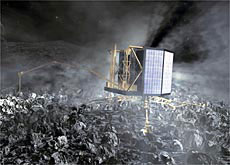
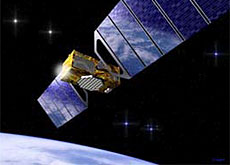
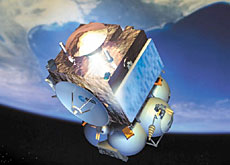
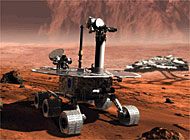
You can find an overview of ongoing debates with our journalists here. Please join us!
If you want to start a conversation about a topic raised in this article or want to report factual errors, email us at english@swissinfo.ch.